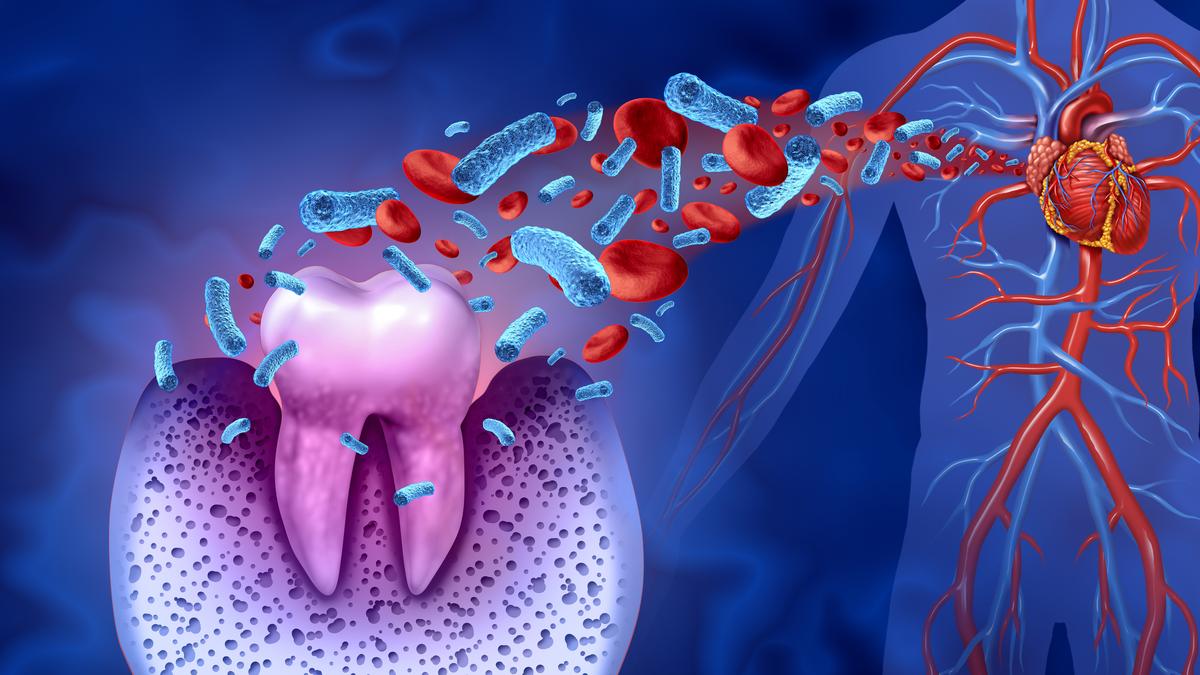
News
October 07, 2025
Could hidden dental bacteria help explain sudden and deadly heart attacks?
A new study, by a research team in Finland, examined coronary arteries from 121 sudden-death autopsies and 96 patients undergoing vascular surgery. Using DNA detection tests and microscopic staining, the researchers found bacterial DNA in a significant proportion of samples
**Could hidden dental bacteria help explain sudden and deadly heart attacks?**
A groundbreaking study from Finland is suggesting a potential link between bacteria commonly found in the mouth and sudden, fatal heart attacks. Researchers have uncovered evidence suggesting that oral bacteria may play a role in the development and rupture of plaques in coronary arteries, the vessels that supply blood to the heart.
The research team, comprised of scientists from various Finnish institutions, investigated the coronary arteries of two distinct groups. The first group consisted of 121 individuals who had died suddenly and unexpectedly, undergoing autopsies to determine the cause of death. The second group included 96 patients who were undergoing vascular surgery to treat pre-existing heart conditions. This provided a unique opportunity to compare the bacterial composition of arteries in individuals with both sudden and chronic heart problems.
The researchers employed sophisticated techniques to analyze the arterial tissue. They used DNA detection tests, which are highly sensitive methods for identifying the presence of specific bacterial DNA sequences. In addition, they used microscopic staining techniques to visually examine the tissue samples and identify bacteria within the arterial walls.
The findings revealed the presence of bacterial DNA in a notable proportion of the samples analyzed. While the specific types and quantities of bacteria varied, the study indicates a potential association between the presence of these microorganisms and the health of the coronary arteries. The researchers believe that the bacteria, likely originating from the mouth, may travel through the bloodstream and colonize in the arterial plaques.
This colonization could contribute to inflammation and instability within the plaques, potentially leading to their rupture. A ruptured plaque can trigger the formation of a blood clot, abruptly blocking blood flow to the heart and causing a sudden and potentially fatal heart attack.
While the study does not definitively prove a causal link between oral bacteria and sudden cardiac death, it provides compelling evidence that warrants further investigation. The researchers emphasize that maintaining good oral hygiene, including regular brushing and flossing, may be crucial in preventing the spread of these bacteria and potentially reducing the risk of heart disease. Further research is needed to fully understand the mechanisms by which these bacteria contribute to heart disease and to develop targeted preventative strategies.
A groundbreaking study from Finland is suggesting a potential link between bacteria commonly found in the mouth and sudden, fatal heart attacks. Researchers have uncovered evidence suggesting that oral bacteria may play a role in the development and rupture of plaques in coronary arteries, the vessels that supply blood to the heart.
The research team, comprised of scientists from various Finnish institutions, investigated the coronary arteries of two distinct groups. The first group consisted of 121 individuals who had died suddenly and unexpectedly, undergoing autopsies to determine the cause of death. The second group included 96 patients who were undergoing vascular surgery to treat pre-existing heart conditions. This provided a unique opportunity to compare the bacterial composition of arteries in individuals with both sudden and chronic heart problems.
The researchers employed sophisticated techniques to analyze the arterial tissue. They used DNA detection tests, which are highly sensitive methods for identifying the presence of specific bacterial DNA sequences. In addition, they used microscopic staining techniques to visually examine the tissue samples and identify bacteria within the arterial walls.
The findings revealed the presence of bacterial DNA in a notable proportion of the samples analyzed. While the specific types and quantities of bacteria varied, the study indicates a potential association between the presence of these microorganisms and the health of the coronary arteries. The researchers believe that the bacteria, likely originating from the mouth, may travel through the bloodstream and colonize in the arterial plaques.
This colonization could contribute to inflammation and instability within the plaques, potentially leading to their rupture. A ruptured plaque can trigger the formation of a blood clot, abruptly blocking blood flow to the heart and causing a sudden and potentially fatal heart attack.
While the study does not definitively prove a causal link between oral bacteria and sudden cardiac death, it provides compelling evidence that warrants further investigation. The researchers emphasize that maintaining good oral hygiene, including regular brushing and flossing, may be crucial in preventing the spread of these bacteria and potentially reducing the risk of heart disease. Further research is needed to fully understand the mechanisms by which these bacteria contribute to heart disease and to develop targeted preventative strategies.
Category:
Technology